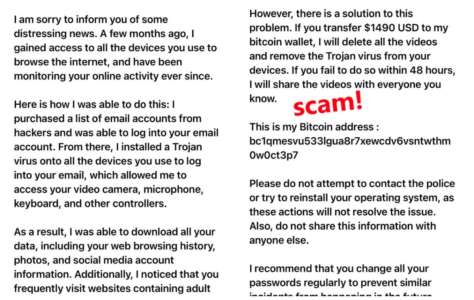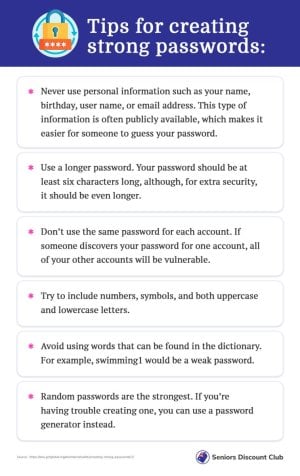New 'myGov' email scam targeting unsuspecting Australians
- Replies 22
In this day and age, scams have unfortunately become increasingly common, making it crucial for everyone to stay well-informed and remain vigilant in order to protect their hard-earned money and personal information.
Unfortunately, a new email phishing scam is circulating, and it involves scammers posing as myGov, putting both your personal information and finances in jeopardy.
The Australian Competition and Consumer Commission's (ACCC) Scamwatch is sounding the alarm, urging Aussies to exercise caution when encountering suspicious emails claiming to be from myGov.
These fraudulent messages go so far as to make threats of exposing your private details to your loved ones unless you comply with their demands and pay a ransom.

A highly concerning email scam has emerged, designed to instil fear and anxiety in its recipients. The email begins with the statement: 'I am sorry to inform you of some distressing news.'
What follows is an unsettling and meticulously constructed deception crafted to strike terror in the hearts of those who receive it. The message claims, 'A few months ago, I gained access to all the devices you use to browse the internet and have been monitoring your online activity ever since.'
These deceitful individuals further assert that they have successfully infiltrated your email account and installed a malicious Trojan virus on all your devices. By doing so, they claim to have full control over your camera, microphone, keyboard, and other essential controls.
Exploiting their false allegations, they go on to assert that they have captured explicit videos of you and threaten to expose them to everyone in your contact list unless you comply with their demands and make a payment.
The culprits conclude their email with a chilling directive: 'Please do not attempt to contact the police. Do not share this information with anyone else…'

Scamwatch advises everyone to remain vigilant and emphasises that the government would never resort to such threats or request payments through cryptocurrency. Their recommendation is clear: 'Don't respond. Just delete.'
To protect yourself from this and other scams, Scamwatch recommends keeping your computer security updated with anti-virus and anti-spyware software and a reliable firewall. Always opt for trustworthy software from reputable sources.
As per the ACCC, more than 2,000 threat and extortion scams have been reported this year alone, with victims losing an astounding $5.7 million to such devious schemes.

Creating a secure, strong password and keeping your online accounts up to date is the best way to stay safe from email scams. This includes changing your passwords regularly, using a combination of uppercase letters, lowercase letters, numbers, and special characters.
Additionally, it is important to keep track of your passwords and avoid using the same password across multiple accounts.
It is natural for people to get tempted to keep their passwords as simple as possible; however, adding an uppercase letter, a random number, or a special character can go a long way in making your password more difficult to guess.
Even if you use a password management service, changing your passwords regularly and keeping them secure still makes sense since some services themselves could be at risk of a data breach.
Suspicious emails and text messages are no longer an unfamiliar concept to us here at the SDC. But still, we urge everyone to be vigilant and proactive in sharing this information with friends and loved ones.
Let's keep each other safe and protected from those who wish to take advantage of innocent victims in our community.
It is crucial to stay updated and remain vigilant to protect yourself from these fraudulent schemes. By familiarising yourself with the latest scam trends and staying cautious when dealing with suspicious emails, you can minimise the risk of falling victim to such scams.
Remember, if something seems too good to be true or suspiciously threatening, it probably is. Stay informed, stay alert, and stay safe.
Have you ever come across a suspicious email before? How did you handle it? We'd love to hear your experiences and learn from each other. Share your stories in the comments below, and let's keep the conversation going!
Unfortunately, a new email phishing scam is circulating, and it involves scammers posing as myGov, putting both your personal information and finances in jeopardy.
The Australian Competition and Consumer Commission's (ACCC) Scamwatch is sounding the alarm, urging Aussies to exercise caution when encountering suspicious emails claiming to be from myGov.
These fraudulent messages go so far as to make threats of exposing your private details to your loved ones unless you comply with their demands and pay a ransom.

Scammers are posing as myGov and threatening to expose Aussies' intimate information unless a ransom is paid. Credit: Scamwatch.
A highly concerning email scam has emerged, designed to instil fear and anxiety in its recipients. The email begins with the statement: 'I am sorry to inform you of some distressing news.'
What follows is an unsettling and meticulously constructed deception crafted to strike terror in the hearts of those who receive it. The message claims, 'A few months ago, I gained access to all the devices you use to browse the internet and have been monitoring your online activity ever since.'
These deceitful individuals further assert that they have successfully infiltrated your email account and installed a malicious Trojan virus on all your devices. By doing so, they claim to have full control over your camera, microphone, keyboard, and other essential controls.
Exploiting their false allegations, they go on to assert that they have captured explicit videos of you and threaten to expose them to everyone in your contact list unless you comply with their demands and make a payment.
The culprits conclude their email with a chilling directive: 'Please do not attempt to contact the police. Do not share this information with anyone else…'

Scamwatch has issued a warning about the fake emails and told Aussies to delete them. Credit: Pexels/Torsten Dettlaff.
Scamwatch advises everyone to remain vigilant and emphasises that the government would never resort to such threats or request payments through cryptocurrency. Their recommendation is clear: 'Don't respond. Just delete.'
To protect yourself from this and other scams, Scamwatch recommends keeping your computer security updated with anti-virus and anti-spyware software and a reliable firewall. Always opt for trustworthy software from reputable sources.
As per the ACCC, more than 2,000 threat and extortion scams have been reported this year alone, with victims losing an astounding $5.7 million to such devious schemes.
Key Takeaways
- Scamwatch is warning Australians about a recent email scam impersonating 'myGov' and threatening to expose explicit information unless a payment is made.
- They emphasise that the government would never resort to such tactics and advise recipients to delete the email without responding.
- To protect against scams, it is crucial to keep computer security updated with reliable software, exercise scepticism towards unsolicited emails, and report any scams encountered to the appropriate authorities.
Creating a secure, strong password and keeping your online accounts up to date is the best way to stay safe from email scams. This includes changing your passwords regularly, using a combination of uppercase letters, lowercase letters, numbers, and special characters.
Additionally, it is important to keep track of your passwords and avoid using the same password across multiple accounts.
It is natural for people to get tempted to keep their passwords as simple as possible; however, adding an uppercase letter, a random number, or a special character can go a long way in making your password more difficult to guess.
Even if you use a password management service, changing your passwords regularly and keeping them secure still makes sense since some services themselves could be at risk of a data breach.
Suspicious emails and text messages are no longer an unfamiliar concept to us here at the SDC. But still, we urge everyone to be vigilant and proactive in sharing this information with friends and loved ones.
Let's keep each other safe and protected from those who wish to take advantage of innocent victims in our community.
It is crucial to stay updated and remain vigilant to protect yourself from these fraudulent schemes. By familiarising yourself with the latest scam trends and staying cautious when dealing with suspicious emails, you can minimise the risk of falling victim to such scams.
Remember, if something seems too good to be true or suspiciously threatening, it probably is. Stay informed, stay alert, and stay safe.
Have you ever come across a suspicious email before? How did you handle it? We'd love to hear your experiences and learn from each other. Share your stories in the comments below, and let's keep the conversation going!








